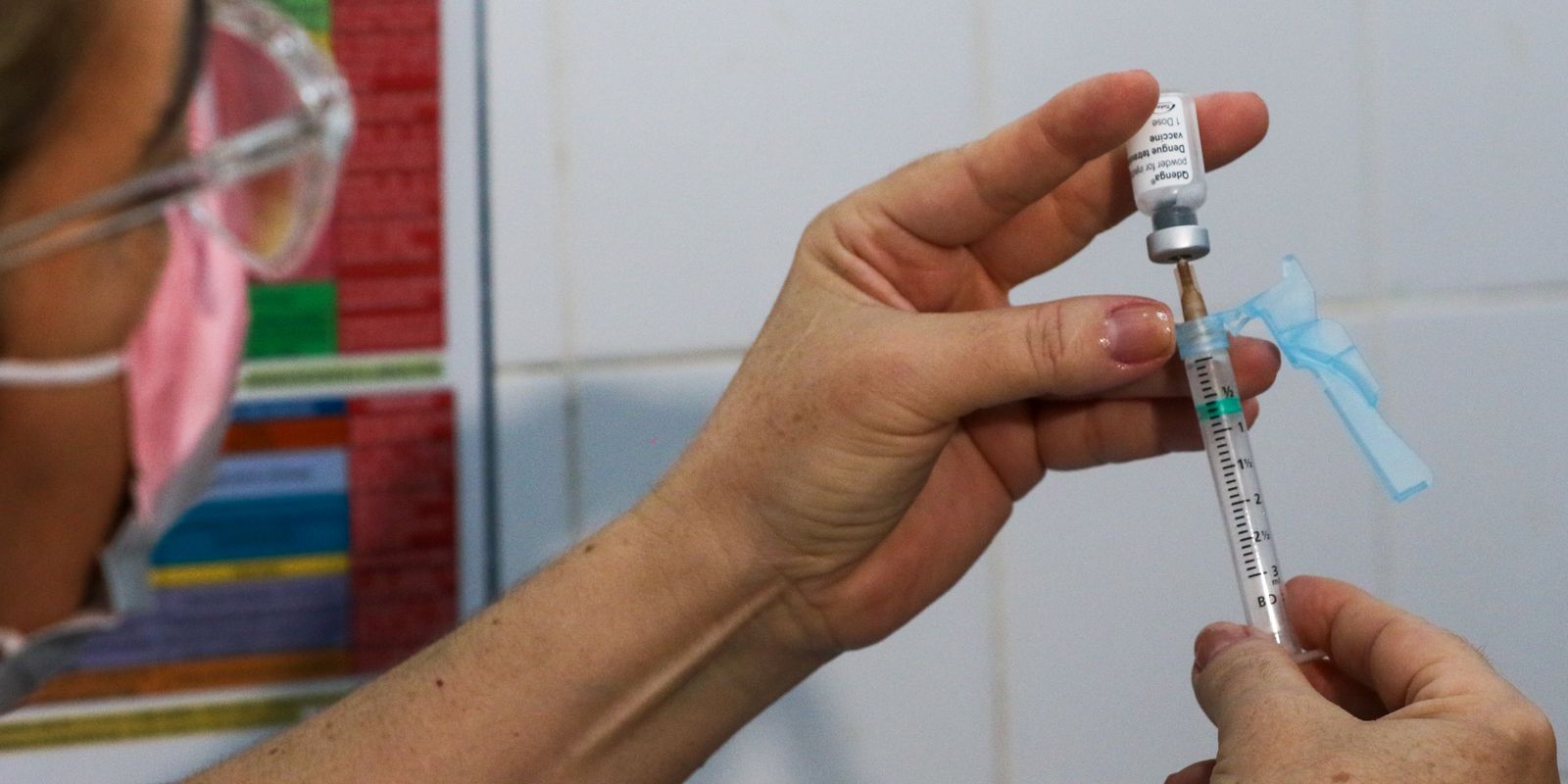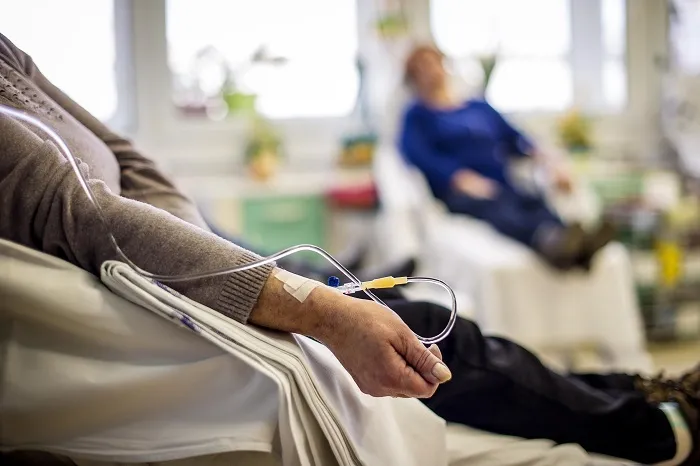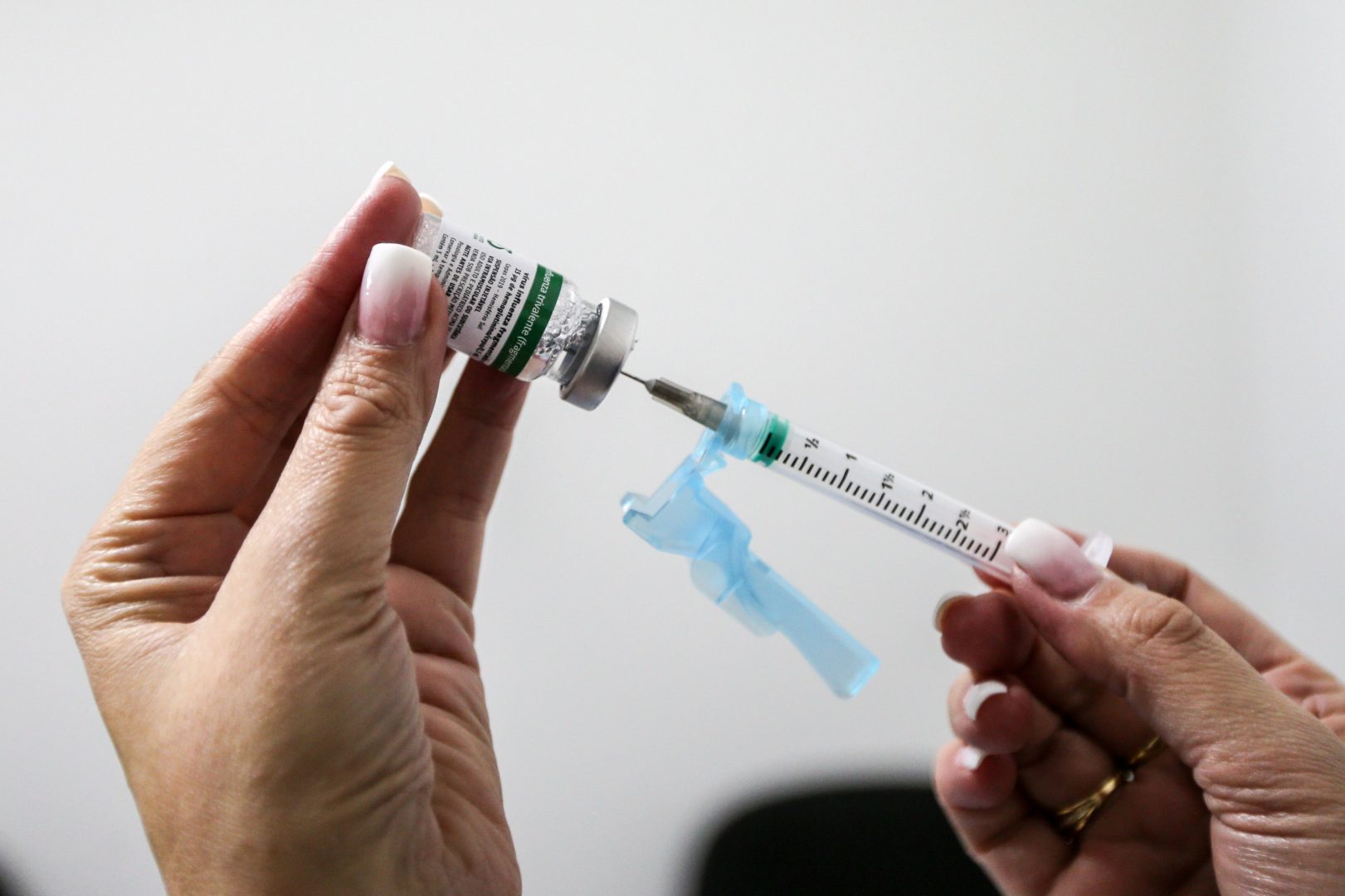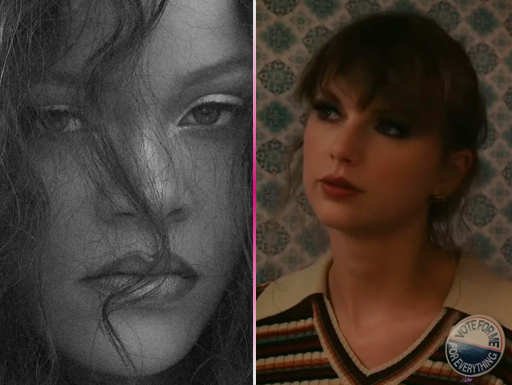
Of the total 1.2 million doses distributed by the federal government to 521 municipalities, only 250,000 dengue vaccines have been administered so far. The data was presented on Friday (8) by the Director of the National Immunization Program Department of the Ministry of Health, Eder Cati.
He pointed out in a press conference that the Ministry has applied a total of 365 thousand doses, because in addition to the strategy developed by SUS, there are also initiatives such as those in the municipality of Dourados (MS), which are vaccinating all local residents between the ages of 4 and 59 years. , thanks to the partnership between the municipal health department and the manufacturer of Qdenga.
The director indicated that the department initially distributed a number of doses to children between the ages of 10 and 11 years. Due to reports of decreased demand for immunization and doses approaching their expiration date, the Ministry has chosen to expand the age group to receive the vaccine at this time, to also include teenagers between the ages of 12 and 14 years.
Understands
The Ministry of Health has selected a total of 521 municipalities from 16 Brazilian states, as well as the Federal District, to begin dengue vaccination through the Unified Health System (SUS) starting in February. The cities constitute a total of 37 health zones that are considered, according to the ministry, to be endemic to the disease.
Children and adolescents aged 10 to 14 years, the age group with the highest number of dengue hospitalizations, constitute the target audience for immunization. From January 2019 to November 2023, the group accounted for 16,400 hospitalizations, second only to the elderly, a group not eligible for the vaccine.
Attention to parents
For more than 15 years, pediatrician Natalia Bastos has been treating patients from newborns to teenagers in the federal capital. In an interview with Brazil AgencyShe pointed out that there is an increase in dengue fever cases and parents must be careful.
“I would like to issue this alert to ask parents who have not vaccinated their children to seek out the vaccination room so that Qdenga can be administered.” [vacina contra a dengue]. It is a dengue vaccine made from an attenuated virus and is a very safe vaccine. It has been developed by the Takeda laboratory since before Covid-19, that is, before the outbreak of the epidemic. So, it's not a new vaccine, and it's not a vaccine that was hastily developed. There are already many studies and it has gone through all stages.
Natalia emphasized that Qdenga's full vaccination schedule, consisting of two doses, guarantees approximately 80% effectiveness and that side effects, including in children, are small – especially when compared to those that can be caused by dengue infection.
“With one dose, you usually have very mild immediate side effects, and within 10 days, some spots on the body or some pain in the body. However, there are few symptoms considering what dengue can cause in children or adults.
“While in the private network room, the vaccine cost an average of R$400 to R$500. Today, the vaccine is available in the health center room for free. Therefore, I call on all parents to request the vaccine with their children between the ages of 10 and 11.” One year as a matter of urgency.”

“Friendly zombie guru. Avid pop culture scholar. Freelance travel geek. Wannabe troublemaker. Coffee specialist.”




:strip_icc()/i.s3.glbimg.com/v1/AUTH_59edd422c0c84a879bd37670ae4f538a/internal_photos/bs/2024/D/j/0VKjbVSiGJCKq6wDp5tg/gravida-aranha-2.jpg)


